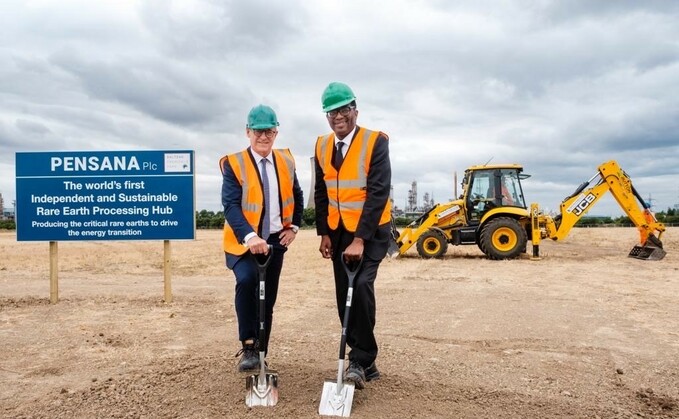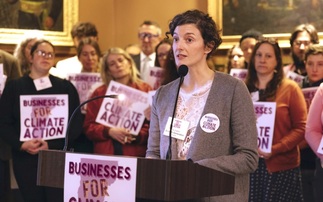
Business Secretary Kwasi Kwarteng at the breaking ground ceremony for the Pensana site | Credit: Pensana
Ministers publish pioneering strategy, as government announces investment in facility set to process minerals required for electric vehicle batteries
The government has this week published the UK's first ever Critical Minerals Strategy, setting out its vision for how it can develop a secure and stable supply of minerals required to build electric vehicles (EVs), solar panels, wind turbines, and other clean technologies.
The roadmap sets out the government's plan to develop more robust supply chains for so-called energy transition minerals - such as graphite, lithium, and silicon - by increasing domestic minerals production, building out the UK's minerals skills base, boosting reuse and recycling, and carrying out "world-leading" research and development in the field.
The Department for Business, Energy, and Industrial Strategy (BEIS) said taken together, the measures would help diversify the UK's minerals supply chains, create jobs, and galvanise the growth of "future industries" such as EV manufacturing, whilst enhancing national security.
"With rising geopolitical threats, Britain needs to move quickly to secure the rare earth minerals necessary to supply our future industries," said Business Secretary Kwasi Kwarteng. "Most of these minerals are sourced from just a handful of countries, leaving Britain vulnerable to market shocks. We need to develop and strengthen our own supply chains to protect our national security into the future."
The Business Secretary launched the Strategy at the ground-breaking ceremony of a pioneering rare earth processing hub at the Saltend Chemicals Park in Hull, East Yorkshire.
Once operational, the £145m facility will refine rare earth oxides required for the creation of magnets, a key component in the manufacture of EVs.
The company behind the venture, Pensana, claims it will process five per cent of global magnet metals on the market today, making it the second largest facility of its type in Europe.
It announced this week that it had secured an undisclosed amount of funding from the government's £1bn Automotive Transformation Fund to help scale up its operations.
Paul Atherley, chairman at Pensana, welcomed the public investment in the facility, which is slated to create 126 new jobs in the area.
"Our Saltend rare earth processing hub will be the world's first independent and sustainable rare earth separation plant, with plans to produce five per cent of the global magnet metals in 2024," he said. "This will play a vital role in transforming the UK's EV and offshore wind industries, as well as creating high value local jobs in the Humber region."
During the ground-breaking ceremony, Kwarteng said recent geopolitical events had highlighted the need to bolster the resilience of global supply chains.
"Russia's illegal invasion of Ukraine is a timely reminder of how global events beyond our control can impact supply chains, with profound consequences for the economy," he said. "To boost our domestic resilience, today's Critical Minerals Strategy lays out our plan to bring high value manufacturing back to the UK to protect our country's future access to supplies."
BEIS said its new Critical Minerals Strategy was focused on accelerating the growth of the UK's domestic capabilities, whilst also driving collaboration with international partners to enhance international markets for transition minerals.
It added that actions were also planned to use the City of London's "unique position" as a global trading hub for metals and minerals to make global markets more effective in delivering the minerals required for the energy transition.
The Strategy include plans for a push to deliver better environmental, social, transparency, and governance standards in critical mineral markets worldwide, arguing that higher standards would reduce the likelihood of unforeseen events causing supply problems.
The Strategy is published just a few weeks after the UK's first Critical Minerals Intelligence Centre was launched at the headquarters of the British Geological Survey in Nottingham.









